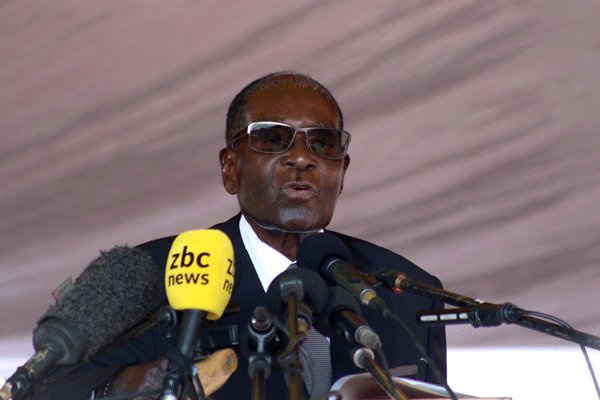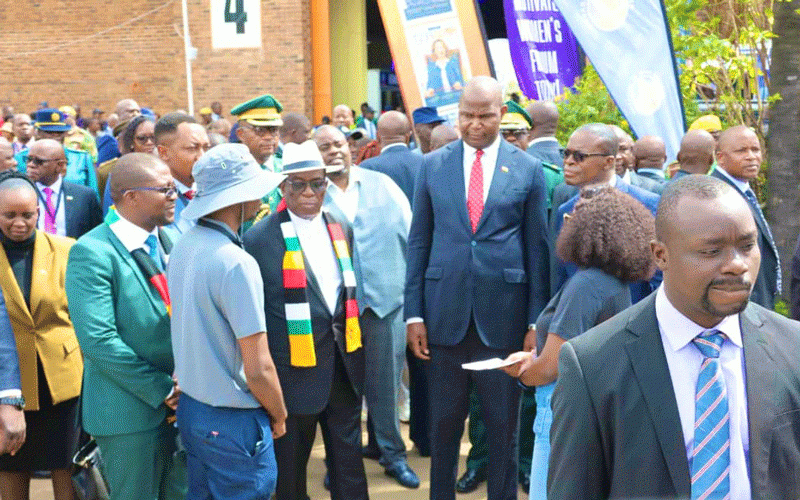
Letter from America:with KENNETH MUFUKA
Now let us sing hymns and songs to those of our white brothers who suffered greatly on our behalf during the colonial regime, and when independence came, celebrated with us as brothers, even though our skins were darker than theirs. Such was the life of Michael Hayes Auret, a devout Catholic and farmer from the Mberengwa paramountcy, Zimbabwe.
My research interest was in the life and times of Robert Mugabe. Somewhere along the line, the name of Mike (as he became known later in life) looms large in a particularly bitter period of Zimbabwe’s history.
A note from my white sister Judy Todd reminded me that the Aurets, Michale and Smiley, (his father) were farmers. Smiley had a dream that the hills of Mberengwa would one day become the home of apple farmers. The weather was cool enough and by some miracle, (as in Israel) springs could be the mainstay in this apple country.
To my surprise, Smiley and Auret visited Sir Garfield Todd, who already was notorious among white farmers for his love of blacks. Sir Todd’s wife had written the Dadaya Scheme, which formed the foundation of African education. Todd, in their eyes, was the worst enemy to the white man’s baaskaap lifestyle. When Todd was overthrown as prime minister, one of his crimes was that he had secretly met with the nationalist Ndabaningi Sithole, a trouble-maker.
The Aurets were Catholic, kept the faith and had an inner experience of the Holy Spirit. Where there is no justice, there is no peace. So, their friendship with Sir Todd, though a surprise to white farmers, and to me, was to be expected. Mike was a member of the Catholic Commission for Justice during the colonial days of Ian Smith.
He had participated in an inquiry into the atrocities of the Rhodesian troops. But I jump the gun. When he refused to renounce loyalty to the Queen, it was obvious that he could no longer hold his captaincy in the army. So began his struggles for justice and for conscience, which only by paying attention to the inner calling of his faith, could he live a normal life?
Smith had listened to him and to the Catholic fathers with scorn and dared them to take their complaints to court on behalf of Africans. They did. Smith then passed a law exonerating those (a priori) who were accused of war crimes.
- Chamisa under fire over US$120K donation
- Mavhunga puts DeMbare into Chibuku quarterfinals
- Pension funds bet on Cabora Bassa oilfields
- Councils defy govt fire tender directive
Keep Reading
When Mugabe became prime minister in April 1980, there was some euphoria among Catholics. One of their own was in charge. Mugabe attended mass and the bishop of Chinhoyi reported that he would ask his driver to stay outside as he approached the holy shrine in fear and in trembling.
With hindsight, we now know that the bishops were fooled, as indeed everybody who had dealings with Mugabe at that time. Some believed that Mugabe was an English gentleman and that such a man would be imbued with a sense of fair play.
So, on March 8, 1983, almost three years after independence, Auret and the bishops entered the prime minister’s office with benevolent expectations. They had “incontrovertible evidence” that Mugabe’s Shona tribal troops, known as the “Rain that washes away the chaff” (Gukurahundi), had conducted “a reign of terro, caused by wanton killings, woundings, beatings, burnings, and rape”.
True to Mugabe’s chameleonic style, the bishops were welcomed and promises were made that inquiries would follow and appropriate action would be taken to prevent such occurrences.
Because of their benevolent feelings towards Mugabe, the bishops withheld the larger document from publication, to give him time to act.
But as the Holy Spirit led the bishops, they sent out a pastoral letter, on April 8, 1983, a week after the meeting, warning the faithful that the western part of the country (Matabeleland) was in the throes of some form of genocide.
Mugabe reacted furiously. Their mouthings were concocted by whites, whose aim was to blacken African rulership. The bishops were the hidden hand of foreign powers and working in cahoots with “fabricated reports of a hostile foreign press”.
If Auret had hoped for a more benevolent and symbiotic relationship with the son of the church, he now realised that he was terribly mistaken.
The great betrayal In this instalment, I want to emphasise that our white brothers who had sacrificed their lives and reputations on our behalf when we were unable to speak for ourselves felt terribly betrayed by Mugabe’s government.
Auret was not the only one.
Before the meeting on March 8, the Swiss German bishop of Bulawayo, Ernest Karlen, had sent Judy Todd to Harare with a package. Believing in the chimera that Mugabe was a devout Catholic, the bishop thought if only he knew what his tribal Shona troops were doing in Matebeleland, surely in God’s name, as the Lord liveth, Mugabe is a reasonable man. He will see reason.
Judy was fellowshipping at the Ambassador Hotel lounge when she saw General Solomon Mujuru, Justin Nyoka (my college mate at U-Zee) and Major General Agrippah Mutambara.
Assuming that her journey could be shortened if she enrolled the services of Mujuru, she revealed the contents of the package to the three apparatchiks. Nyoka was sweating drops of blood from his face and making wild gestures to Judy. Judy, assuming the innocence of her mission, did not comprehend Nyoka’s wild gestures.
Mutambara invited her to his military base in Harare and allegedly raped her as punishment for carrying the package/message of disapproval of military atrocities.
Auret did not cease and desist in aspiring for a just society. In 1999 he served as vice-chairperson of the National Constitutional Assembly, the forerunner of the Movement for Democratic Change. He won a seat in the legislative assembly in Harare Central.
But he was a marked man. There was another reason. Senior Catholic bishop Patrick Chakaipa, Mugabe’s friend, shielded Mugabe in the belief that infractions by black leadership are exaggerated by imperialists in order to delegitimise the nationalist struggle.
The report by the Catholic Commission for Justice and Peace was kept under wraps for 10 years. This to Auret was intolerable. Though the contents had been known, the publication of the report, titled Breaking the Silence 1997, was a bombshell.
The reaction to the report is symptomatic of Mugabe’s rule. He and his cohorts never accepted responsibility for wrongdoing; a sure sign that malefactors like Mutambara enjoyed Mugabe’s blessings.
Two years after Auret had entered Parliament, Mugabe leashed another horrendous onslaught, the decapitation of the white tribe and all their assets. They too had been lulled into a false sense of security. For the safety of his family, Auret migrated to Ireland, where he continued working for the Catholic Church.
I was told that he had been “summoned by the authorities” several times and informed that “unspecified action” awaited him. My informant said that assisted road accidents and disappearances were common against government opponents. That he was “plastered with fear for his family of the highest magnitude” (Zimbabwean English) was credible interoperation for his unceremonious departure.
To his family, my words of comfort are that Auret was my white brother, that his betrayal was our betrayal, and that his name is recorded in the chronicles of Zimbabwe. Our faith teaches us that a righteous life is better than living the life of a prince among malefactors.
Rest now in peace. You have kept the faith and walked in our Lord’s footsteps. Your courage will inspire damsels and young men who fight for freedom. Peace.
l Ken Mufuka and Cyril Zenda spent 10 years researching the Life and Times of Robert Mugabe; A Dream Betrayed (Innov Bookshops, Zimbabwe) from which excerpts are taken. Mufuka is a patriot who writes from the US.










